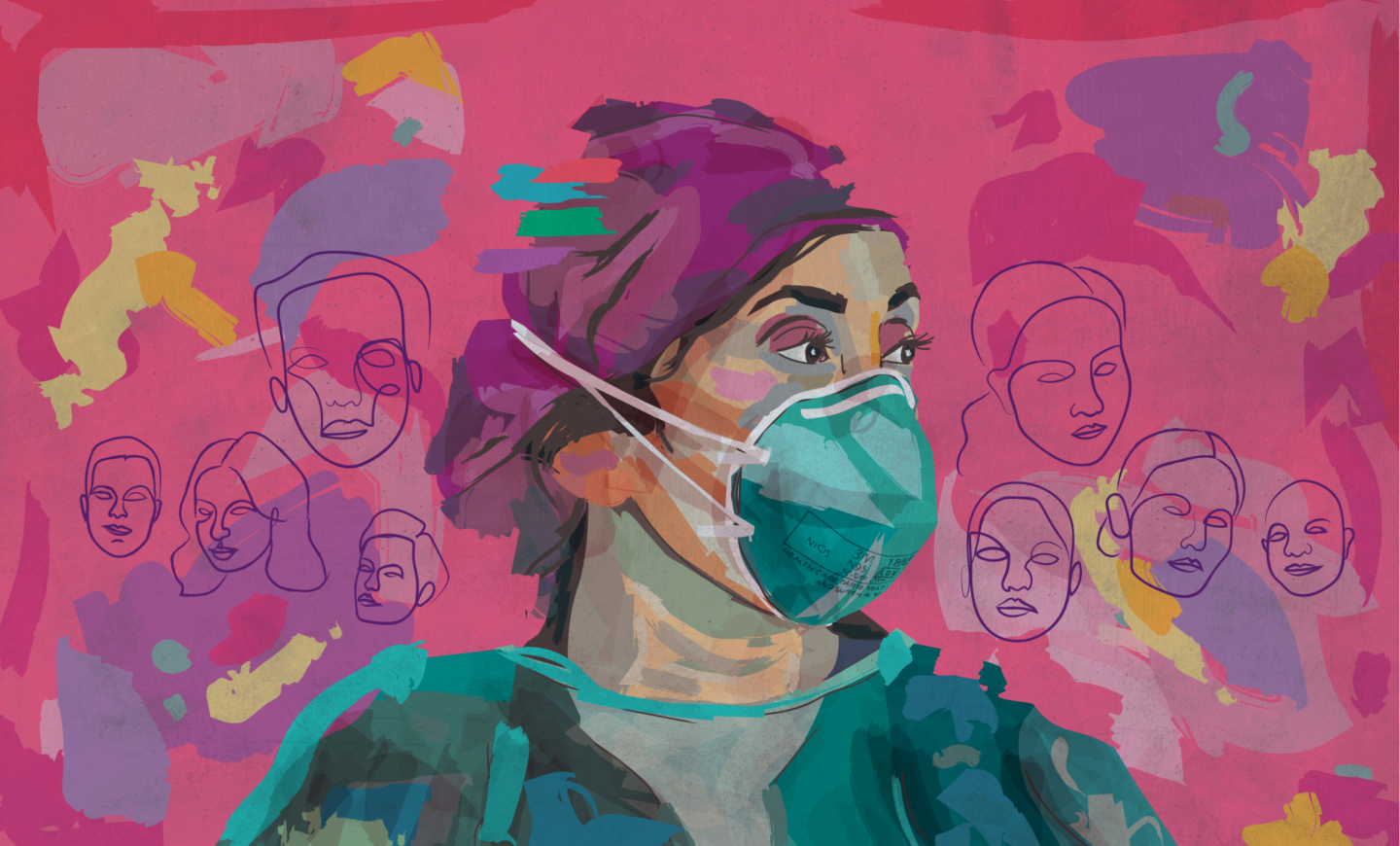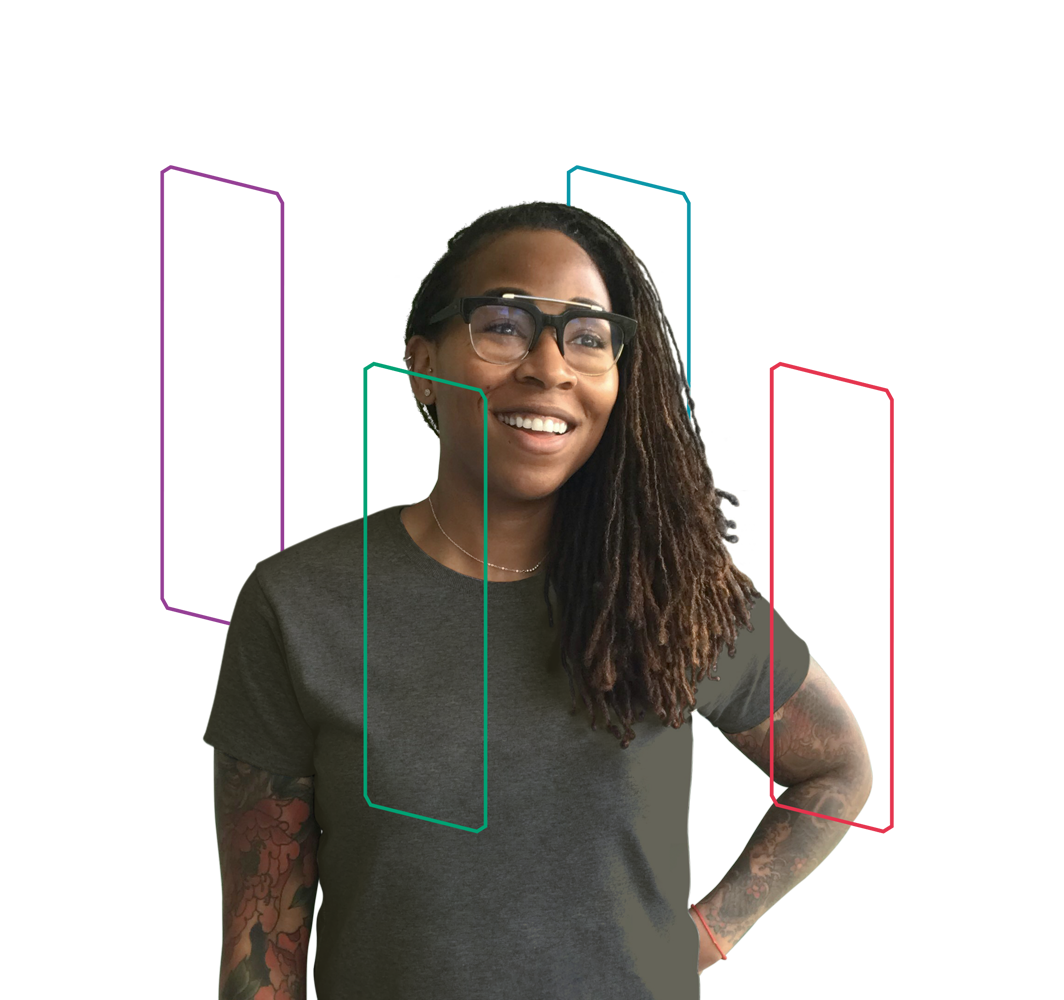“…[New nurses] get this tunnel vision with what they’re doing, and it’s not that they don’t understand the ABCs, like that wasn’t driven home in their education. A lot of times when you stop them and say, ‘Hey, [the patient] is de-satting, is the bath as important as their saturation and brain function?’ Then they go, ‘Oh,’ and that light goes on and they stop.”
That’s this week’s guest Alison R., talking about those moments when new nurses get so caught up in the task at hand that they miss the big picture. Which is exactly why the role of preceptor exists: to support the transition from the classroom to the bedside, and to ensure that new nurses are able to continue learning on the job without compromising patient care. I mean, we’ve all been there, SHIFT Talkers. Brand new to the job with a stomach full of butterflies, hoping you’re getting it right but not always really knowing. If you have the right preceptor, that can be your safety net.
Spend just a few minutes with Alison, and you’ll see it’s no surprise that she’s gravitated toward mentoring in general and preceptorship in particular. A nurturer by nature, Alison quickly rose up the ranks at her community hospital to become a charge nurse, the mother hen of her post-surgical unit. This past March, she volunteered to become a preceptor. She had barely gotten to know the two nurses she was training—one fresh out of nursing school and the other with some on the job experience but new to her unit—when COVID-19 hit, elective surgeries were paused, and they were all told they’d be floated to COVID-19 units.
“I signed up to teach them, had a couple of weeks on our post-op floor. And then we were told as a unit that we would be transitioning to ‘where we were needed.’ And that was when we all got very, very anxious, just about the entire process… because it would be a new situation for me. And then I’d also [need to] be teaching and relaying things to [these two nurses] in a way that they could understand.”
Alison was used to treating relatively healthy patients, but overnight she became responsible for people with severe respiratory and cardiac issues. While she was trying to get her bearings in this new reality, she also had to help her trainees do the same. To us, it sounds like an almost impossible challenge, but for Alison, it was just what the shift required. Taking care of others is part of her DNA (sound familiar?). Regardless of which unit these nurses were on, she was their preceptor. Her priority—even in a pandemic—was helping them learn.
“It was a very interesting situation because I got to see either ends of the spectrum—with a nurse who had very little experience at bedside and then one who had, you know, a variety of different areas that she had practiced in…navigating the ways that they learn best was definitely challenging. The one who had [nursing] experience had understanding of how she learned best—you know, she was an auditory learner. So, us saying things aloud, obviously hands-on, doing it herself helped. But also helping the new grad figure out the best way that she learns at bedside was something that we had to navigate around.”
Having the support of her hospital leadership during this extremely chaotic time no doubt contributed to Alison’s ability to press on (something not every nurse gets; check out episode 3, “The Floor is on Fire”). There were no major PPE issues, no flagrant safety issues. The team held morning huddles, and the CNO and other organizational leaders made a concerted effort to show their appreciation for the work Alison and other nurses were doing. For Alison, most of the stress stemmed from the virus itself. From not knowing how to help the patients with COVID-19. And, also from worrying that the nurses she was training might burn out. She told us she felt it was her responsibility to try to prevent that from happening.
“…I would say that preceptors have a vital role in helping nurses understand what works best for them to decrease their stresses in this new environment that they’re in. Being that mentor, helping them understand, you know, it’s OK to take a break to step away. It’s great to have that mentor to talk with, even after work, to decrease our anxiety and stress, to chat about what happened that day—the things that went well, the things that went bad, things that we were angry, upset about, or sad. Just having people to talk with that have gone through similar situations or have been there during that situation can really help, and making sure that it’s the right job for them, that they’re transitioning well, helping them find out their strengths and weaknesses, that can also help with decreasing that burnout.”
A common theme throughout Alison’s interview is this idea that communication can solve so much—whether that’s helping a new nurse figure out how she learns best or supporting an experienced nurse entering uncharted territory. It’s not just what we do on our shifts—it’s how we talk about it, during and after. It’s that we talk about it at all. It’s that others want to talk with us.
“I hope that communication is definitely still driven home. That it’s an imperative aspect of our care, communicating with everyone on the team. Sometimes I think we forget that even though we’re taking care of the patient, there’s four or five other people who are involved.”
That’s Alison’s vision for the future of nursing—and some shift talk we can get behind for sure.
About the guest
Alison R. received her bachelor of science in nursing degree at Belmont University five years ago and has been working as a registered nurse at a community hospital in Nashville, Tennessee ever since. She currently specializes in orthopedic and neurosurgical post-operative care and is a charge nurse on a 20-bed unit. Alison has loved taking care of people since she was a little girl and knew from an early age that she wanted to be a nurse—and now that she’s well into that career, she’s as devoted to supporting her colleagues as she is to caring for her patients. In fact, this spring, on top of all her other responsibilities, she volunteered to serve as a preceptor. Little did she know that COVID-19 was about to hit, and that her unit would temporarily close its doors as elective surgeries crashed to a halt. At the same time that she was getting floated to COVID-19 units and struggling to orient herself to those units’ practices and policies—not to mention how to actually treat the virus—she was playing the role of mentor to two other nurses. Lucky for them, Alison kept her cool amid the chaos and continued to provide the support that they needed.


